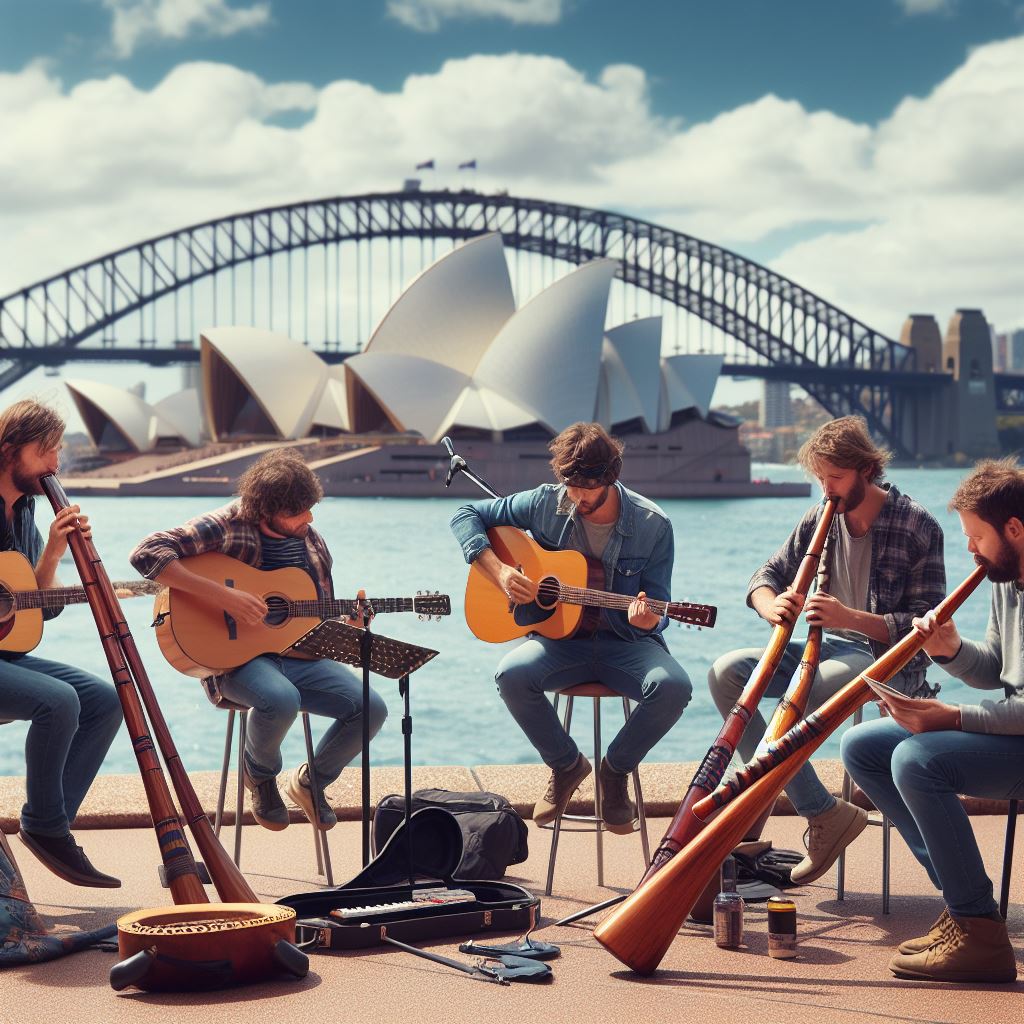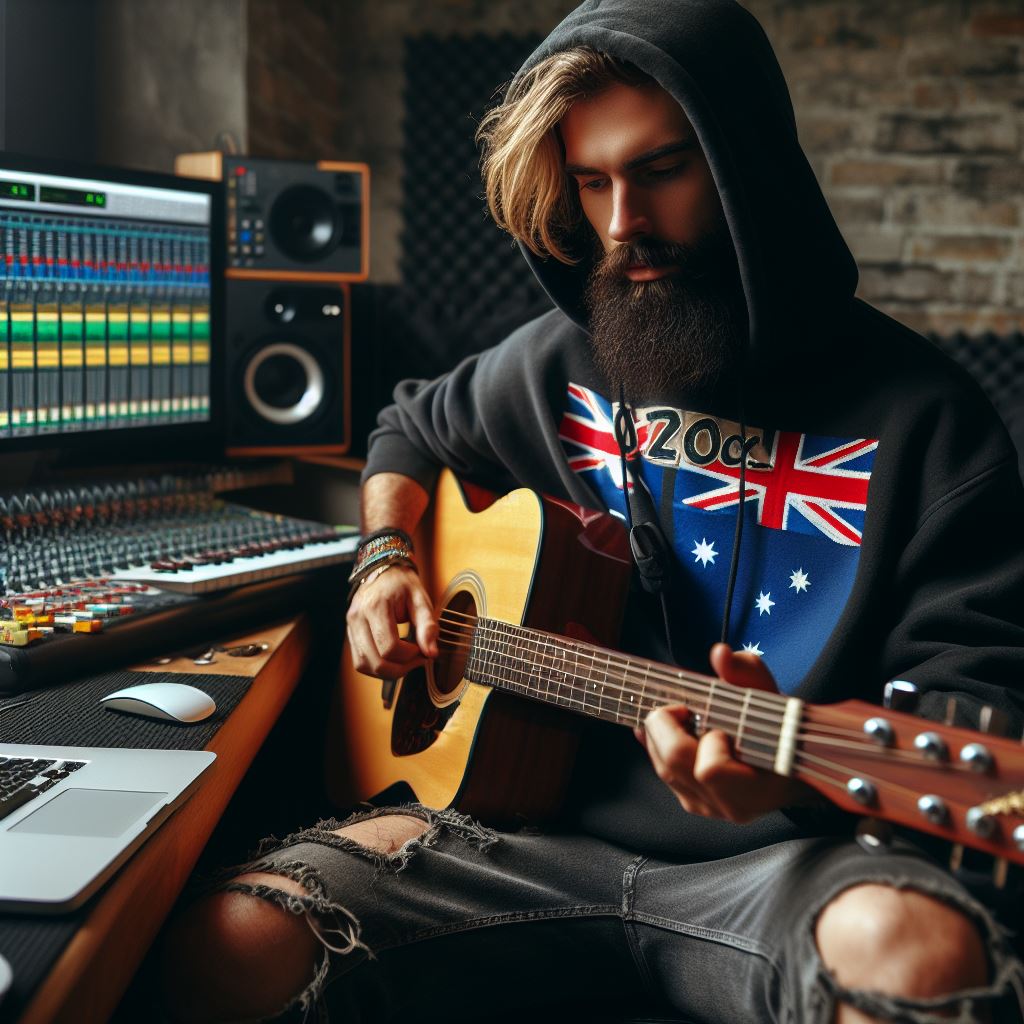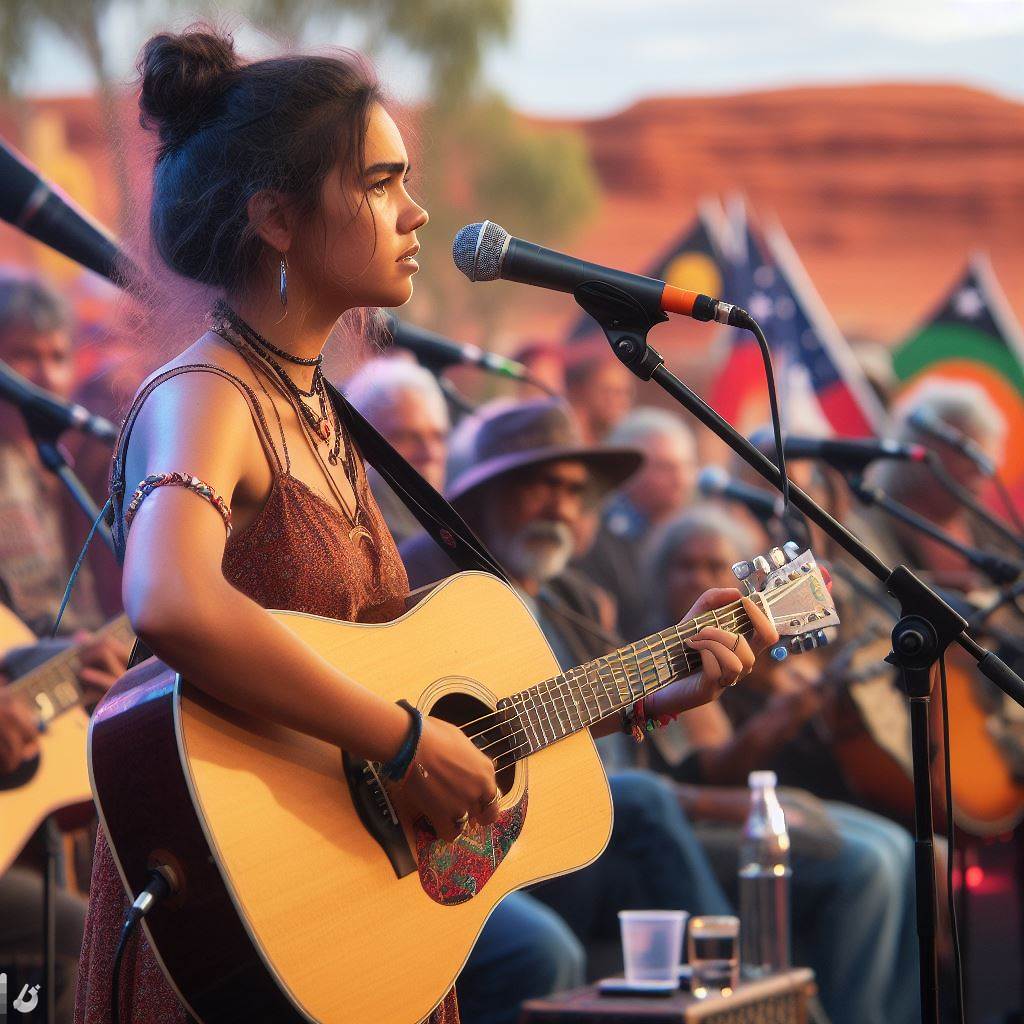Introduction
Unlocking success in Australia’s music scene demands more than talent. let’s discuss on how to network in Australia music scene.
Networking, a linchpin for musicians and industry professionals, propels careers to new heights.
- Dynamic Connections: In the vibrant Australian music landscape, networking is the key that opens doors.
- Building Alliances: Musicians thrive not just on melodies but connections. Network to amplify your reach and influence.
- Strategic Collaborations: In the ever-evolving industry, collaborations birth innovation. Network strategically to find the perfect partners for your projects.
- Navigating Opportunities: Networking unveils avenues for gigs, collaborations, and even record deals. Seize opportunities by expanding your professional circle.
- Industry Insight: Connect with industry veterans for invaluable insights. Learn from their experiences to navigate the complex music business terrain.
In this section, we delve into the nuances of networking in Australia’s music scene, exploring its indispensable role in sculpting thriving careers.
Understanding the Australian Music Scene
Overview of the Australian Music Industry
- Australia has a vibrant and thriving music industry that contributes significantly to the country’s culture and economy.
- The industry comprises various segments, including live performances, recording, publishing, and distribution.
- Australian artists have achieved international recognition, reinforcing the country’s reputation for musical talent.
- A strong emphasis on supporting local talent has led to the growth of grassroots music scenes across the country.
- The Australian music industry is known for its entrepreneurial spirit and innovative approaches to music marketing and promotion.
Genres and Subcultures within the Music Scene
- Australia’s music scene embodies a diverse range of genres, catering to a wide array of musical tastes.
- Rock, pop, hip-hop, electronic, and country are among the most prominent genres within the Australian music industry.
- Indigenous music plays a significant role, with artists incorporating traditional elements into contemporary compositions.
- Subcultures such as punk, metal, indie, and alternative scenes have their dedicated following and contribute to the diversity of the music landscape.
- Each genre and subculture has its own unique characteristics and fanbase, fostering a sense of community and shared passion.
Diversity and Richness of Australian Music
- Australian music reflects the country’s multicultural nature, with artists from various ethnic backgrounds contributing to its richness.
- Indigenous musicians play a pivotal role in showcasing the unique sounds and stories of Australia’s First Nations people.
- Female artists have made significant strides in breaking down gender barriers and challenging traditional industry norms.
- The Australian music scene offers opportunities for musicians of all backgrounds, fostering inclusivity and celebrating diversity.
- The industry’s landscape is constantly evolving, with emerging artists pushing boundaries and experimenting with new sounds.
Diverse Harmony: Australia’s Thriving Music Scene and Global Recognition
The Australian music scene presents a vibrant and diverse community that embraces both local talent and international recognition.
The industry encompasses various genres and subcultures, showcasing the country’s multiculturalism. From rock to hip-hop, Indigenous to indie, the Australian music scene offers something for everyone.
Australia’s music industry is recognized worldwide for its entrepreneurial spirit and innovative approaches to marketing and promotion.
The focus on supporting local talent has led to the growth of grassroots music scenes, constantly challenging and evolving the status quo.
A Symphony of Diversity: Exploring the Vibrant Tapestry of Australia’s Music Scene
With a rich and diverse pool of musicians, the Australian music scene reflects the country’s multicultural nature. Indigenous artists play a pivotal role in showcasing the unique sounds and stories of Australia’s First Nations people.
Female artists have also made tremendous progress, breaking down gender barriers and contributing to the industry’s growth.
The Australian music scene thrives on diversity, inclusion, and the pursuit of musical excellence. From small local gigs to large music festivals, there are countless opportunities for musicians to network, collaborate, and showcase their talents.
The industry’s constant evolution ensures that new sounds and emerging artists are always embraced and celebrated.
In essence, understanding the Australian music scene requires recognizing its unique characteristics, genres, and subcultures. The diversity and richness of Australian music, coupled with its entrepreneurial spirit, set it apart on the global stage.
Whether you’re a musician, music enthusiast, or industry professional, Australia’s music scene provides a wealth of opportunities to network, explore, and be part of an incredible musical journey.
Building a Solid Foundation
When it comes to networking in Australia’s music scene, one of the most important aspects is establishing a strong online presence.
In this digital age, social media platforms have become essential tools for artists to connect with industry professionals and potential collaborators. Here are some key points to consider:
Emphasize the significance of establishing a strong online presence through social media platforms
Social media platforms such as Facebook, Instagram, and Twitter provide artists with an opportunity to showcase their music and connect with a wider audience.
It is important to regularly update these platforms with engaging content, such as pictures, videos, and updates about upcoming projects or performances.
Building a loyal following on social media can help you gain exposure and attract the attention of industry professionals.
The importance of creating a professional website or portfolio
Having a professional website or portfolio is crucial for networking in Australia’s music scene. It serves as an online hub where you can showcase your work, share your story, and provide contact information.
A well-designed website or portfolio can make a strong first impression and establish your credibility as a musician.
The need to have a polished music demo or portfolio that represents your best work
A polished music demo or portfolio is essential for networking in Australia’s music scene. This is your chance to showcase your talent, creativity, and versatility.
Make sure to include your best work, whether it’s original songs, covers, or collaborations. A professional-sounding demo can attract the attention of industry professionals and increase your chances of getting noticed.
In conclusion, networking in Australia’s music scene begins with building a solid foundation online.
Emphasize the importance of establishing a strong online presence through social media platforms, creating a professional website or portfolio, and having a polished music demo or portfolio.
These elements are essential for connecting with industry professionals, potential collaborators, and gaining exposure in the music industry.
Read: Building a Music Career in Australia
Attending Local Music Events
Attending local gigs, concerts, and music festivals is essential for anyone looking to network in Australia’s music scene.
These events offer numerous benefits, allowing musicians to connect face-to-face with industry professionals, fellow musicians, and fans.
Your Personalized Career Strategy
Unlock your potential with tailored career consulting. Get clear, actionable steps designed for your success. Start now!
Get StartedFirst and foremost, attending local music events provides a great opportunity to build relationships and expand your network. By being present at these gatherings, you can meet like-minded individuals who share your passion for music.
Networking in person allows you to establish a more personal connection compared to online interactions.
One of the benefits of connecting with fellow musicians is the potential for collaboration. You may find other musicians who have similar musical styles or interests, and together, you can create new music or even form a band.
Collaborations not only enhance your creativity but also expose you to new audiences.
Another advantage of attending these events is the chance to connect with industry professionals. You may come across music producers, managers, or A&R representatives who can potentially help you advance your music career.
These professionals often attend local events to discover new talent and may be open to working with promising artists.
In addition to networking, attending local music events allows you to gain exposure and expand your fan base. Performing at open mic nights or small gigs can attract listeners who have never heard your music before.
Engaging with these new fans can lead to loyal followers and potential supporters for future projects.
The benefits of networking face-to-face and connecting with fellow musicians, industry professionals, and fans
Networking face-to-face may seem intimidating at first, but there are strategies you can employ to make it easier.
Firstly, try to approach people with a friendly smile and introduce yourself. Remember to ask them about their own musical journey and show genuine interest in what they have to say.
Tips on how to approach people and start conversations at these events
It’s also helpful to come prepared with a few conversation starters or ice breakers. Ask about their favorite local bands or inquire about their thoughts on the current music scene in Australia.
By showing genuine curiosity, you can initiate meaningful discussions that may lead to valuable connections.
Furthermore, don’t be afraid to exchange contact information with those you meet. Whether it’s an email address or social media handles, keeping in touch allows you to nurture the connections you’ve made.
You can follow up with new acquaintances, discuss potential collaborations, or simply stay updated on each other’s musical endeavors.
Attending local music events is an indispensable part of networking in Australia’s music scene. By taking advantage of these opportunities, you can meet like-minded individuals, collaborate with fellow musicians, and connect with industry professionals.
Remember to approach people with confidence and genuine interest, and don’t forget to exchange contact information for future communication. So go out there, attend local gigs, make connections, and watch your music network grow.
Read: The Evolution of Australian Music Genres
Joining Music Associations and Organizations
various music associations and organizations in Australia
When it comes to networking in Australia’s music scene, joining music associations and organizations can be incredibly beneficial. These groups provide a platform for musicians, industry professionals, and enthusiasts to connect and collaborate.
One prominent music association in Australia is the Australian Music Industry Network (AMIN). Established in 1996, AMIN is a collective of music industry professionals across various sectors.
By becoming a member of AMIN, musicians gain access to networking events, workshops, industry forums, and exclusive resources.
Another notable organization is the Association of Artist Managers (AAM). This association represents artist managers and provides them with opportunities to connect and learn from industry experts.
AAM hosts networking events, panel discussions, and conferences that offer valuable insights into the music industry.
In addition to these, there are several genre-specific associations in Australia. For instance, the Australian Independent Record Labels Association (AIR) focuses on promoting independent record labels and supports artists in the independent music sector.
Members of AIR can attend industry networking events, workshops, and gain exposure through AIR’s various promotion initiatives.
The advantages of becoming a member, including access to networking events, workshops, and resources.
So, what are the advantages of becoming a member of these music associations and organizations? Firstly, they offer a supportive community where musicians can connect with like-minded individuals.
These networks provide a space to share experiences, collaborate on projects, and gain valuable advice from industry peers.
Stand Out with a Resume That Gets Results
Your career is worth more than a generic template. Let us craft a resume and cover letter that showcase your unique strengths and help you secure that dream job.
Get HiredFurthermore, these associations frequently organize networking events that bring together professionals from all aspects of the music industry.
Attending these events allows musicians to establish valuable contacts, potentially leading to collaborations, gigs, and other opportunities.
These events often feature industry insiders, such as record label representatives and music festival organizers, creating direct pathways to relevant decision-makers.
Workshops and industry-focused educational programs are also a significant benefit of joining these associations. Many associations offer workshops on topics such as music marketing, copyright law, and artist management.
These workshops provide valuable knowledge and skills that can help musicians navigate the complexity of the music industry.
Guidance on how to find and join these associations
Now that you understand the advantages of joining music associations, how can you find and become a member? One approach is to search online for associations that align with your musical genre or interests.
Websites like Music Australia and the Australian Music Association list various associations and organizations across the country.
Once you’ve identified the associations you’re interested in, check their membership requirements and fees. Some associations may require a certain level of professional experience or qualifications.
It’s essential to review these criteria, ensuring that you meet the requirements before applying for membership.
Applications for membership are generally available on the associations’ websites. Fill out the required information, pay the membership fees, and submit your application.
Afterward, you’ll typically receive a confirmation email with further instructions regarding membership benefits and access to events and resources.
Networking has always played a crucial role in the music industry. By joining music associations and organizations in Australia, musicians can broaden their networks, gain industry insights, and open doors to exciting opportunities.
So, don’t hesitate to take that first step and become an active member in the vibrant Australian music scene.
Read: Music Production: A Guide for Aussies
Utilizing Online Networking Platforms
Networking is crucial in any industry, especially in the competitive music scene in Australia. In today’s digital age, online platforms have become valuable tools for connecting with potential collaborators, industry professionals, and music enthusiasts.
Here are some tips on how to effectively network online:
Explore the possibilities of using online platforms
- LinkedIn: Create a professional profile that highlights your experience, skills, and musical achievements.
- Facebook groups: Join music-related groups where you can engage in discussions, share your work, and find like-minded individuals.
- Industry-specific forums: Participate in forums dedicated to the music industry where you can contribute your knowledge and connect with professionals.
Engage in meaningful conversations and connect with relevant individuals
Networking is not just about reaching out to people, but also building genuine connections. Here are some tips:
- Initiate conversations: Start discussions, ask questions, and provide valuable insights within online communities.
- Respond to others: Reply to comments, offer feedback, and show genuine interest in others’ work.
- Connect with relevant individuals: Identify people who can potentially help your music career and send them personalized messages.
Maintain a professional and positive online presence
Your online presence speaks volumes about you as a musician. Here’s how to maintain a favorable impression:
- Be consistent: Regularly update your profiles with new music releases, achievements, and upcoming events.
- Show professionalism: Use appropriate language, maintain a professional tone, and avoid engaging in online conflicts.
- Show support: Share and promote the work of others, showing that you are an active and supportive member of the music community.
- Be authentic: Let your personality shine through your online presence, as it helps people connect with you on a deeper level.
Basically, online networking platforms provide numerous opportunities for musicians to expand their connections and reach within Australia’s music scene.
By utilizing platforms like LinkedIn, Facebook groups, and industry-specific forums, musicians can engage in meaningful conversations, connect with relevant individuals, and maintain a professional and positive online presence.
In a digital world, networking online has become an essential marketing strategy for aspiring musicians to promote their work and establish valuable connections.
Read: Australian Music Awards: A Closer Look

You Might Also Like: Building a Photography Brand in Australia
Find Out More: Sydney’s Best Writing Workshops in 2024
Transform Your LinkedIn for Maximum Impact
Elevate your professional brand with a LinkedIn profile that attracts recruiters, showcases your expertise, and maximizes opportunities. Stand out in your industry with a profile built for success.
Boost ProfileCollaborating with Other Musicians
Collaborating with other musicians can greatly benefit your career in the music scene in Australia. By working together, you can expand your networks, reach new audiences, and create unique and exciting music.
Here’s how you can find potential collaborators and foster successful partnerships:
Utilize Online Platforms
The internet is a valuable resource for connecting with like-minded musicians. Platforms such as SoundCloud, Bandcamp, and Facebook groups allow you to showcase your work and discover potential collaborators.
Join Local Music Events
Attending concerts, open mic nights, and music festivals in your area can lead to networking opportunities with fellow musicians. Be open to introducing yourself and striking up conversations.
Explore Music Schools and Communities
Local music schools, community centers, and jam sessions are excellent places to meet musicians who share your passion. These environments foster creativity and collaboration.
Engage in Online Communities
Participate in forums, Facebook groups, and online communities dedicated to musicians in Australia. Share your work, seek feedback, and connect with others who could potentially be collaborators.
Attend Music Workshops and Seminars
Workshops and seminars focused on music production, songwriting, and performance offer a fantastic opportunity to meet fellow musicians with complementary skills.
Be Clear and Open in Your Communication
When approaching potential collaborators, clearly communicate your goals, expectations, and ideas for the project. This can avoid any misunderstandings or conflicts later on.
Cultivate Respectful Relationships
Treat your collaborators with respect and professionalism. Value their input and ideas, and be open to compromise. Collaborations should be a mutually beneficial and enjoyable experience.
Clearly Define Roles and Responsibilities
Establishing clear roles and responsibilities early on in the collaboration can prevent confusion and ensure everyone knows their respective contributions.
Share Resources and Connections
In a collaboration, it’s essential to support and help each other. Share your industry contacts, studio resources, and gig opportunities to create a strong and supportive network.
Embrace Diversity and Experimentation
Collaborating with musicians from different genres or backgrounds can lead to unique and innovative sounds. Don’t be afraid to step outside your comfort zone and explore new styles.
Document and Share the Process
Documenting and sharing the collaborative process can help promote your work and attract new audiences. Consider creating behind-the-scenes videos, live streams, or blog posts.
Learn from Each Collaboration
Every collaboration is a learning experience. Reflect on what worked well and what didn’t, and apply those lessons to future projects.
In short, collaborating with other musicians is a powerful tool for expanding networks and reaching new audiences in Australia’s music scene.
By finding potential collaborators through online platforms, local events, and music communities, you can foster respectful and mutually beneficial relationships.
Remember to communicate clearly, define roles, and embrace diversity to create innovative music that stands out in the industry.
Explore Further: How Aussie Artists Impact Global Media
Nurturing Relationships and Follow-Up
In Australia’s music scene, networking is crucial for success. However, making initial connections is only the first step. To truly thrive, it is essential to nurture and cultivate those relationships over time.
This section will emphasize the importance of following up after networking interactions and provide tips on how to maintain and strengthen connections.
Follow up after networking interactions
- Send a personalized email or message expressing gratitude for the meeting or interaction.
- Reference specific points discussed during the networking encounter to show genuine interest.
- Offer any additional information or resources that may be helpful to the contact.
- Set clear expectations for future communication and express a desire to stay connected.
Tips for staying in touch with contacts
- Utilize social media platforms to connect and engage with your contacts.
- Regularly comment on their posts, share their content, and show support for their projects.
- Attend industry events and concerts where your contacts might be present.
- Reach out periodically with updates about your own career or projects.
The value of maintaining a genuine interest in others
Building relationships in the music industry is not just about what others can do for you. It is equally important to show a genuine interest in the success and well-being of your contacts. This can be achieved by:
- Asking about their current projects and showing enthusiasm for their work.
- Listening actively and providing thoughtful feedback when they share their challenges or successes.
- Offering help and support whenever possible, whether through connections, advice, or resources.
- Remembering important details about your contacts’ personal lives and interests.
By nurturing relationships and maintaining a genuine interest in others, you build a strong network that will support your own musical journey.
This network can offer collaborations, opportunities, and a sense of community within the Australian music scene.
Remember, networking is not just about what you can gain; it is about building mutually beneficial relationships. Be proactive in your follow-up efforts and stay engaged with your contacts.
Through continuous nurturing and support, your network will grow and thrive, opening doors to new opportunities and helping you establish a lasting presence in Australia’s music industry.
You Might Also Like: Mastering Light: Tips from Aussie Pros
Conclusion
To summarize, networking is crucial for success in Australia’s music scene. Through networking, musicians can build connections, collaborate with other artists, and increase their opportunities for gigs and exposure.
It is evident that networking plays a significant role in enhancing music careers in Australia.
By actively participating in networking events, reaching out to industry professionals, and utilizing online platforms, musicians can expand their professional network and open up possibilities for growth.
Therefore, it is important for aspiring musicians and those already in the music industry to take action and start networking.
Building relationships and connections can lead to exciting collaborations, career-enhancing opportunities, and a broader fan base.
Don’t hesitate any longer; start attending events, connecting with industry professionals, and leveraging online platforms to network in Australia’s music scene.
The more you invest in networking, the more you increase your chances of success in the dynamic and vibrant Australian music industry.




